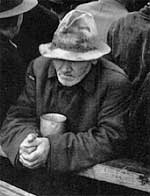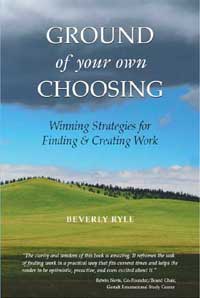Tag
What’s Open?
 On outer Cape Cod where I live there is the summer tourist season, when every business has more than they can handle, the fall “tour-bus” season, which some businesses stay open to accommodate, and the off-season when any discussion of where to go starts with, “What’s open?”
On outer Cape Cod where I live there is the summer tourist season, when every business has more than they can handle, the fall “tour-bus” season, which some businesses stay open to accommodate, and the off-season when any discussion of where to go starts with, “What’s open?”
I’ve grown used to the limitations that go with living year round in a summer vacation destination, but I didn’t expect to find the same problem on a recent visit to Washington DC which happened to coincide with the first day of the government shutdown.
All the places I’d hoped to visit—the National Gallery, the World War II Memorial, the Holocaust Museum, the National Arboretum—were closed, so I said to myself, I need to do what I do all winter—direct my attention to what’s open.
The Daily Grind
 At the Daily Grind coffee shop in Cortland, New York, I watched a steady stream of farmers in overalls, contractors in flannel shirts, and 9-to-5 employees in business dress, and I thought about how every town or neighborhood has a hub like this. Find a Daily Grind, full of regulars who stop in on their way to work, and you've found the heart of the work life of a city.
At the Daily Grind coffee shop in Cortland, New York, I watched a steady stream of farmers in overalls, contractors in flannel shirts, and 9-to-5 employees in business dress, and I thought about how every town or neighborhood has a hub like this. Find a Daily Grind, full of regulars who stop in on their way to work, and you've found the heart of the work life of a city.
Listening to what was being said there, it became clear to me that the Cortlanders whose daily ritual I was observing were trying to make a living in a place where that is not always an easy thing to do—the town has an 11% unemployment rate and negative job growth.
People usually go about about dealing with work being hard to find in three distinct ways.
Dealing With Someone Else’s Job Loss
Judging from conversations I’m having these days with loved ones of those who have suddenly found themselves unemployed, or fear that they might be, there are a lot of people entering 2009 with concerns about another person’s employment status.
While we all recognize that it’s difficult being the one out there looking for work, we sometimes forget that it is also emotionally challenging for the spouse or the parent of that person.
You want very much to be supportive, to be wholeheartedly there for your husband, wife or child, but at the same time you are grappling with your own fears. Keeping your anxiety from overcoming the goal of providing support and encouragement to the work-seeker is a tricky business.
The Mayflower Leaving
 I've been thinking a lot about the Pilgrims lately, and not because as I write this it's a few days after Thanksgiving. Thanksgiving represents abundance, yet my thoughts concerning these first New England immigrants have been more about scarcity and how they dealt with it.
I've been thinking a lot about the Pilgrims lately, and not because as I write this it's a few days after Thanksgiving. Thanksgiving represents abundance, yet my thoughts concerning these first New England immigrants have been more about scarcity and how they dealt with it.
Coming to the New World was always a risky venture for them, and to make matters worse, when they arrived, they were not where they expected to be, the mouth of the Hudson River, where the weather was more temperate and soil more fertile.
You need only step into Provincetown Harbor in November, where they waded ashore for the first time, or stand for few moments in the winter wind off Plymouth Bay to imagine their dismay at the miscalculation that had brought them there.
Despite the fact that he had misgivings about the Pilgrims at first (he thought they were kooks), Christopher Jones, skipper of the Mayflower, had come to respect his pious passengers, so much so that he delayed his departure as long as he could.
But on April 5, 1621, almost six months after it arrived, the Mayflower sailed for England, There is a local cafe which has a painting of this moment hanging on the wall. It shows the citizens of the newly founded colony of Plymouth watching the Mayflower leave, taking with it any possibility of going back to the life they had previously known. From now on, they would be alone in a world full of uncertainty and peril, which also offered, if they persevered, the possibility of creating a better life.






